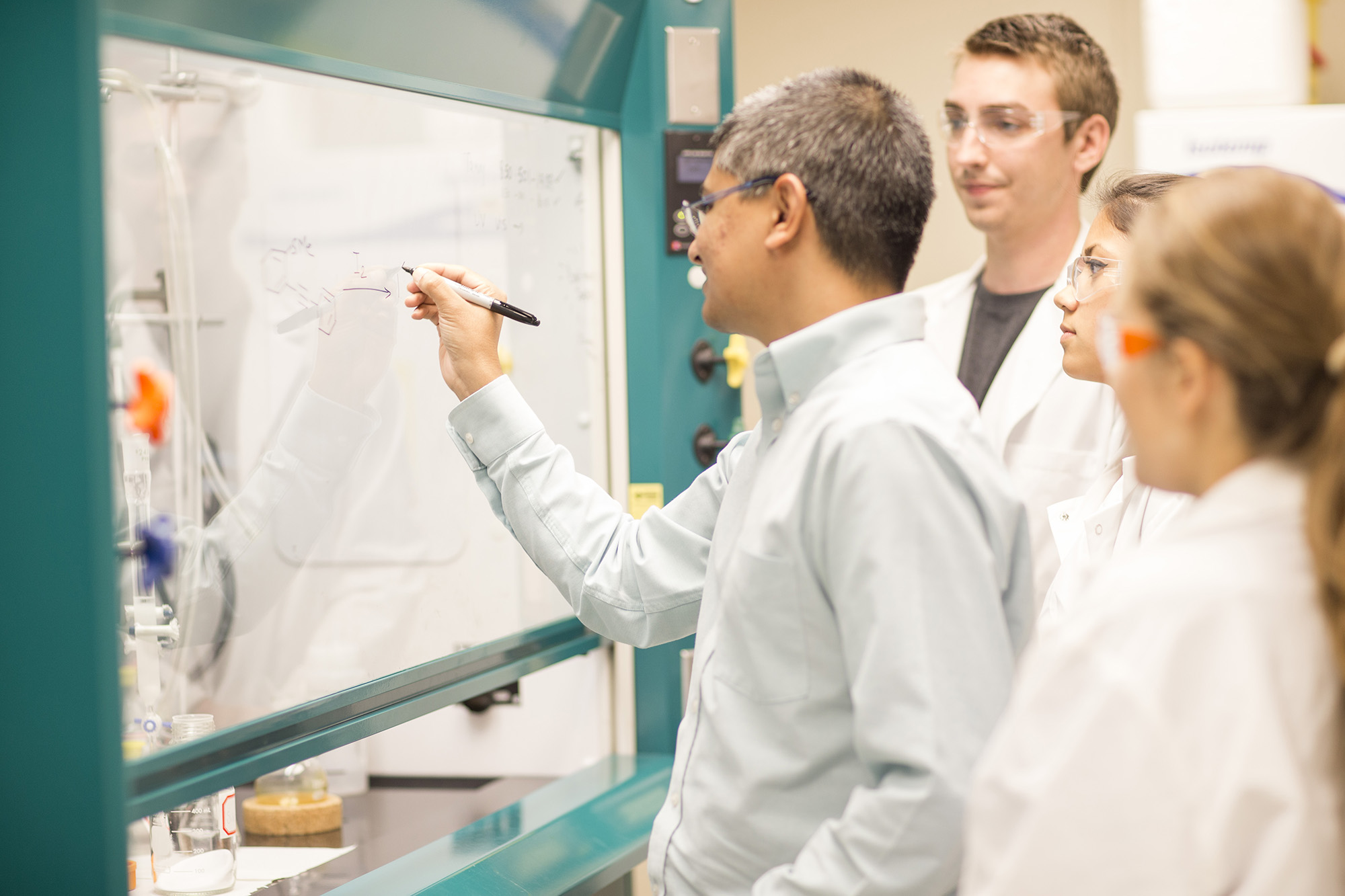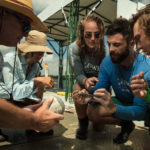UWF to merge Biology and Chemistry in experimental pilot program
The University of West Florida has been selected as one of 17 universities to participate in the SEA-PHAGES (Science Education Alliance-Phage Hunters Advancing Genomics and Evolutionary Science) program, jointly administered by the University of Pittsburgh and the Howard Hughes Medical Institute's Science Education division. The program will commence at UWF in Fall 2015.

The University of West Florida has been selected as one of 17 universities to participate in the SEA-PHAGES (Science Education Alliance-Phage Hunters Advancing Genomics and Evolutionary Science) program, jointly administered by the University of Pittsburgh and the Howard Hughes Medical Institute’s Science Education division. The program will commence at UWF in Fall 2015.
Funded by HHMI, this two-semester, discovery-based research course aims to increase undergraduate interest and retention in the biological sciences through immediate immersion in valuable, yet accessible research. Invitations to incoming freshmen will be sent in May and the 24 students selected to participate will be notified by the end of June.
Led by teaching partners Dr. Hui-Min Chung, associate professor of Biology, and Dr. Pamela Tanner, Chemistry lecturer, the pilot-based course will merge content from both subjects to take the place of traditional undergraduate laboratory work. Lectures will remain the same.
Most SEA-PHAGES schools offer the program either through the Biology or Chemistry department. UWF chose to differentiate its application for funding by merging the complementary disciplines.
“The Chemistry is going to support the Biology,” Tanner said. “We’re hoping to have independent students who can function in a research setting and have critical thinking skills.”
Major research projects are generally the work of graduate studies. Now, through the SEA-PHAGES program, college freshmen will be paired with faculty mentors to perform course-based research – as opposed to the more common directed study, which can limit the scope and scale of projects.
“We are realizing more and more the research portion is an important piece for students to get a good science education,” Chung said. “This particular project is an experiment in course-based undergraduate research, allowing more students to be exposed to research models.”
Another unique element of the SEA-PHAGES project is the opportunity for students to take ownership in the work. Although faculty will serve as the main investigators who compile the data, student participants will be named as part authors.
“We have a great opportunity to play with the reform of science education and really see the students as future scientists,” Chung explained.
In the past, HHMI has primarily funded SEA-PHAGES program to biology departments of research-oriented universities and liberal art colleges. With this award, the Institute has recognized the value of regional comprehensive universities such as UWF. UWF is the first university to have biology and chemistry departments jointly offer the research course, taking an interdisciplinary approach on science education reform.
“We hope this will be the start of many more grants to the University,” Tanner said. “We’re excited about this partnership between departments, as it is very unique.”
To learn more about the SEA-PHAGES program, please visit www.seaphages.org.


